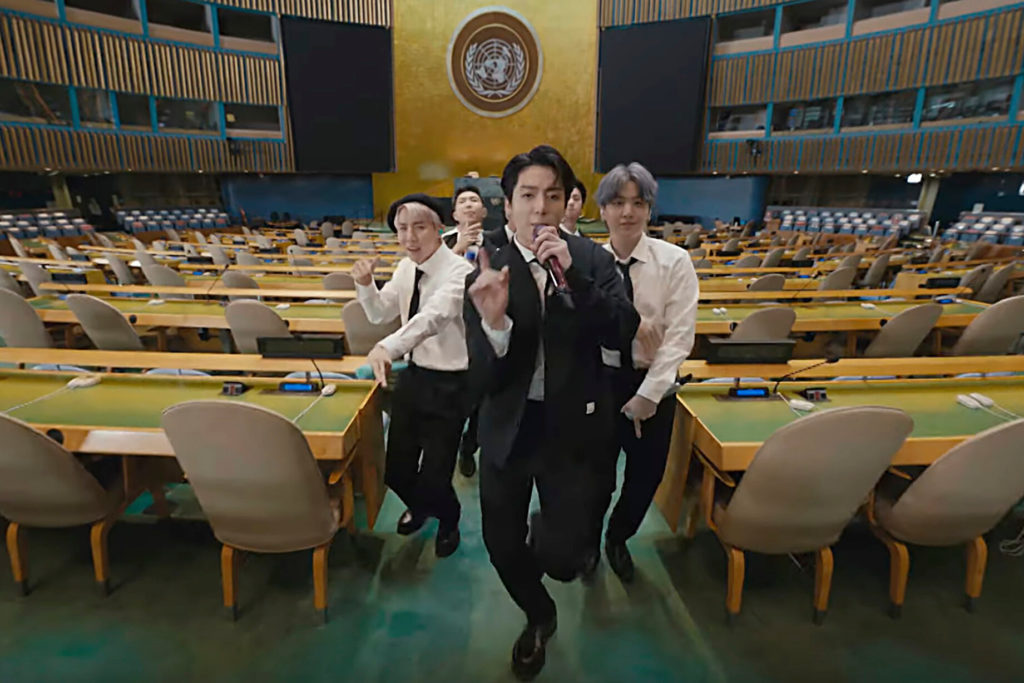The Peninsula
K-Pop Rises to Social Advocacy

A popular online joke last week went something like this: “The leaders of South Korea and Moon Jae-in came to New York.” While the band’s global popularity is unmistakable, the fact that members of a Korean pop band were on the floor of the United Nations addressing world leaders remains no less surprising. The band was reprising its role from 2017 when its members came to the UN to promote the launch of UNICEF’s Generation Unlimited – a program “dedicated to increasing opportunities and investments for children and young people aged 10 to 24.”
What might be prompting the band to maintain its prominence on the global stage? One thought is that BTS is being shaped by its international fanbase. Last year, American fans of K-pop engaged in online political activism to disrupt efforts by U.S. police departments looking to punish racial justice activists. These actions drew attention from the media and even some prominent political figures. Fans of BTS in particular organized and fundraised for the Black Lives Matter movement. In this context, bands might feel more obligated to be present in discussions on social issues.
K-pop fans, both domestic and international, have steadily become more proactive over the years. In 2012, fans of the K-pop trio Seo Taiji and Boys raised money to establish a conservation zone in Brazil’s Guapi Assu rainforest. Elsewhere, a 2019 report from the Chilean government identified the country’s K-pop fans as key mobilizers of protests against police brutality and human rights violations.
Are K-pop fans more likely to be politically active than other genres? Indiana University’s CedarBough Saeji believes this may be the case because they are a self-selected group of people who are open to consuming media from abroad and look beyond the status quo around them. Stanford University’s Dafna Zur adds that the highly organized nature of the fanbase lends itself to cultivating solidarity. As the popularity of K-pop spreads further, we may see more Korean bands on the international stage – perhaps we already are.
This briefing comes from Korea View, a weekly newsletter published by the Korea Economic Institute. Korea View aims to cover developments that reveal trends on the Korean Peninsula but receive little attention in the United States. If you would like to sign up, please find the online form here.
Korea View was edited by Yong Kwon with the help of Janet Hong and Yubin Huh. Picture from BTS’ performance of “Permission to Dance” at the UN.
